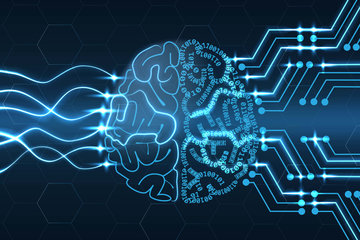Software solutions for greener magnets
The Magnetic Multiscale Modelling Suite supports the development of magnets without rare earth elements
An international team including scientists ofthe Max Planck Institute for the Structure and Dynamics of Matter in Hamburg is establishing an open-source software platform to support the development of environmentally friendly magnets. The platform which will host software tools to model and simulate the properties of novel magnetic materials and is part of an EU-funded collaborative project.

Magnets are crucial for many of today’s technologies, from the generators in wind turbines and the motors that power electric vehicles to computers, sensors and smartphones. Despite the huge importance of magnets, the rare earths they contain are scarce and difficult to mine and separate, so their production can cause serious environmental problems. In addition, 98 percent of the EU’s requirement of these raw materials neesd to be imported – an aspect which causes significant economic dependencies.
Now scientists from Austria, France, Germany and Sweden are joining forces with two major technology companies in a bid to develop more environmentally friendly magnets using sustainable materials. They are setting up an open-source software platform, an enormously powerful tool kit of advanced modelling programs, to simulate the behaviour of magnetic materials and tailor them to specific applications. The pioneering Magnetic Multiscale Modelling Suite (Mammos) will combine experiments, simulation, and artificial intelligence (AI) to identify and design innovative magnetic materials and optimise them for cutting-edge devices and sensors. The four-year project was launched in Wiener Neustadt, Austria, in January and is supported by €6 million in funding from the European Union.
The Mammos project could significantly reduce the development time for novel permanent magnetic materials. In order to boost the accuracy of ongoing simulations, the suite will deploy AI methods in the modelling processes. The project team will create standards to link up existing and future simulation software at all development stages in collaboration with the EU magnet, automation, and sensor industry – from quantum mechanical models and micromagnetics right through to simulators at device level. Participating institutions specialize in the modelling, characterisation, or production of magnetic materials on different length scales. This wealth of simulation tools, characterisation methods and technical know-how will be pooled in MaMMoS, so that the software platform can support the modelling of a vast spectrum of promising materials.
Mammos will prioritise data sharing and reuse amongst researchers and industries. “We will make the Mammos multi-scale modelling framework available as open source on the internet”, explains Hans Fangohr, the project leader at the Max Planck Institute for Structure and Dynamics of Matter. “Through this accessibility we maximise the potential benefits from the investment for all countries, industries and academia, and contribute to the much-needed green revolution.”
The other scientific project partners include the the University for Continuing Education in Krems, Leibniz Institute for Solid State and Materials Research in Dresden, Uppsala University in Sweden and the Centre National de la Recherche Scientifique (CNRS) in Grenoble, France. Two of Germany’s best-known global technology companies, Siemens AG and Robert Bosch GmbH, will contribute wide-ranging industrial expertise and R&D capabilities to the modelling suite. “Greener permanent magnets are of the utmost importance in the race to meet the current climate challenges”, says project coordinator Thomas Schrefl, head of the Centre for Simulation and Modelling at the University for Continuing Education in Krems, Austria. “The Mammos project contributes to the EU Green New Deal by developing methods to minimize the use of critical raw materials in high-performance magnets, which are integral components of electric motors and generators.”
The Mammos project (Nr. 101135546) is funded by the European Union. Views and opinions expressed are however those of the author(s) only and do not necessarily reflect those of the European Union or European Health and Digital Executive Agency (HADEA). Neither the European Union nor the granting authority can be held responsible for them.














